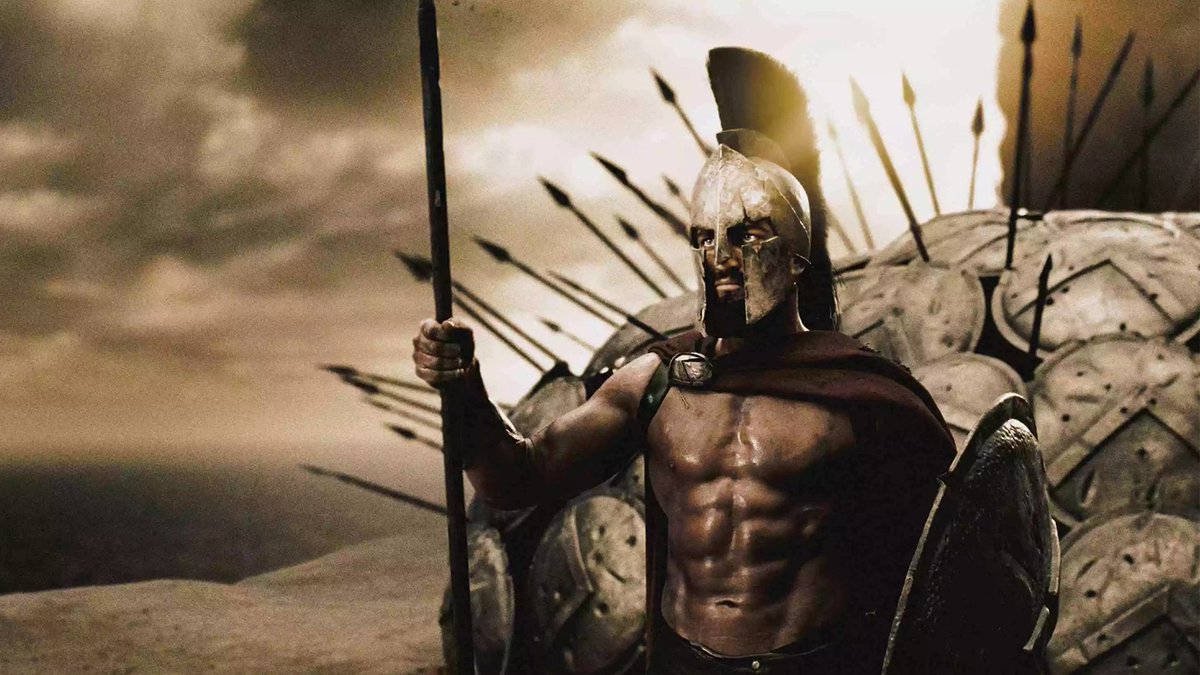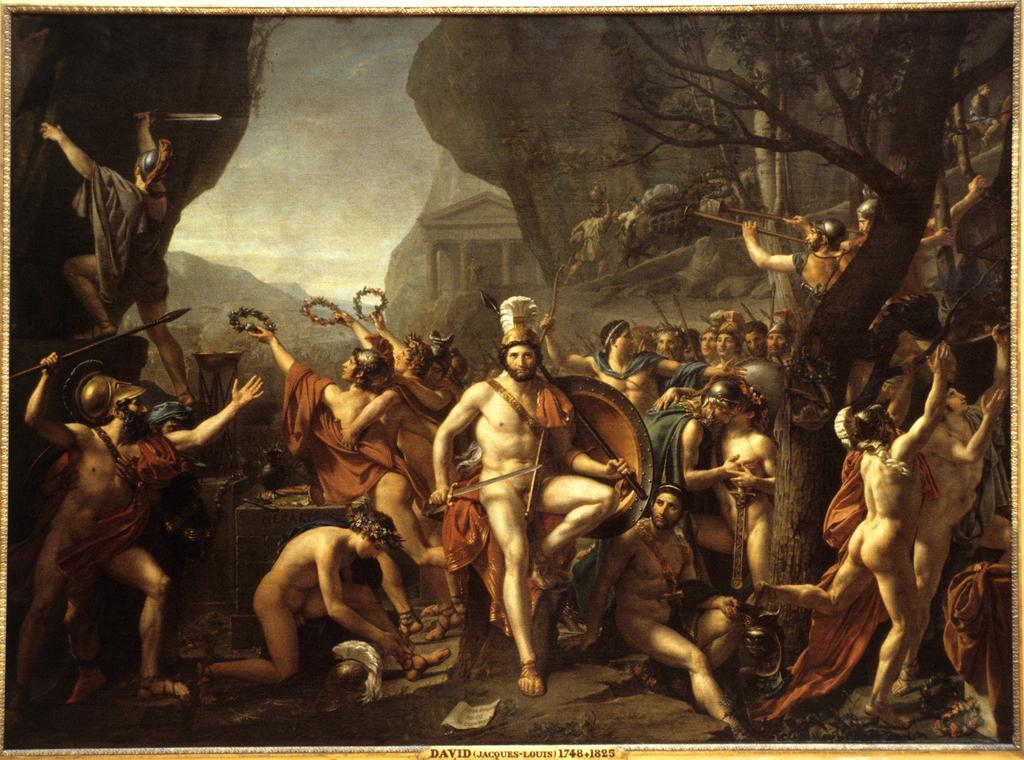Sparta again! Here's a lil thread for your weekend🧵
There's a few defences against historians setting the record straight on Sparta (in this case @BretDevereaux' recent article in Foreign Policy). This one is moving the goalposts: "but within these limits I'm still right!" 1/
There's a few defences against historians setting the record straight on Sparta (in this case @BretDevereaux' recent article in Foreign Policy). This one is moving the goalposts: "but within these limits I'm still right!" 1/
https://twitter.com/romanhelmetguy/status/1684935042554843137
And indeed: Spartans were the acknowledged "leaders of Greece" from ca. 550 BC.
(Not 600 BC. In the first half of the 6th century they were still getting their asses handed to them by Tegea, their much smaller neighbour.)
And it's mainly because Sparta is just so big. 2/
(Not 600 BC. In the first half of the 6th century they were still getting their asses handed to them by Tegea, their much smaller neighbour.)
And it's mainly because Sparta is just so big. 2/
At this time, Sparta has the largest territory and hoplite militia of any Greek state. At Plataia (479 BC) they field 10,000 hoplites, but if our sources are right, they might have been able to go to 16,000+ (half of them Spartiates).
Next largest is Athens with 9,000. 3/
Next largest is Athens with 9,000. 3/
You don't need skill at that point; no one can stand up to you. One by one, Sparta forces its neighbours into unequal alliances: in return for Spartan "protection," they must follow wherever Sparta leads.
Athens narrowly escapes this fate in 507/6 BC, but the Peloponnese... 4/
Athens narrowly escapes this fate in 507/6 BC, but the Peloponnese... 4/
...well, they're Sparta's front yard. In 494 BC the Spartans defeat their chief rival, Argos, and massacre the survivors of the battle. There's no one left to stand up to them, which means the combined forces of the Peloponnese are at their disposal, to direct as they see fit. 5/
They are "leaders of the Greeks" because their numbers > your numbers.
Meanwhile at no point do our sources claim that there is anything special about the way Spartans fight. They are *powerful*, not notably *skilled.* That only changes after their defeat at Thermopylai. 6/
Meanwhile at no point do our sources claim that there is anything special about the way Spartans fight. They are *powerful*, not notably *skilled.* That only changes after their defeat at Thermopylai. 6/
Why? To put it bluntly, Thermopylai was an embarrassment. All Greece looked to its leader and its leader let them down. The Spartans sent a token force and it got wiped out in a week. 4000 Greeks dead. Everyone kept calling for the *real* Spartan army, but it never came. 7/
Spartan damage control after this humiliation by Xerxes is the most successful propaganda campaign in history. They claim there was an oracle, telling them to sacrifice a king to save Greece. They also claim they fought practically alone and slaughtered innumerable Persians. 8/
Even Herodotos thought this was pretty sus, but the story is too good, and it fits what he "knows" about Sparta when he's writing (in the 430s-420s).
Then, the following year, the Spartans finally march out in force to Plataia & beat the Persians. See, they really can do it! 9/
Then, the following year, the Spartans finally march out in force to Plataia & beat the Persians. See, they really can do it! 9/
Spartans live on their reputation after that. People are afraid to fight them because they've all heard the story of Thermopylai. The propaganda. But already at Sphakteria in 425 BC, it turns out real Spartans aren't the same as story-Spartans. They lose and surrender. 10/
Their inability to subject Athens to their will cracks the facade. Their neighbours rally immediately. At Mantineia in 418 BC they challenge Spartan power in the Peloponnese.
But by now, Sparta has learned some techniques that actually *do* make them superior in battle. 11/
But by now, Sparta has learned some techniques that actually *do* make them superior in battle. 11/
Things get more complex after this: Sparta becoming an agent of Persian power in order to maintain their status while beating other Greeks in battle until Leuktra in 371 BC. But this is not separate from their time as "leaders of the Greeks" - it's part of it. 12/
The RT'ed thread claims there is a time when Sparta was in control, and a much later, separate time in which their power crumbled. But one flows from the other. Spartan power was always brittle, always based on exploitation, and they were hugely impopular leaders. 13/
They managed for a while to convince the Greeks that their power was more than numbers, but a few notable defeats put paid to that - and all the while, their numbers dwindled. Bad Spartan customs squeezed those 8,000 Spartiates in 480 BC down to 1,000 in 370 BC. 14/
The Spartans who lost are not a different regime, as unconnected from the Spartan hegemony as the 3rd Republic from Napoleon I. They were the same regime, with their chickens coming home to roost. A hollow leadership, feared & despised, and as it turned out, easily crushed. 15/
Sure you can say they weren't always "losers" because, for a while, they were winning. But they were bad winners, and sowed the seeds of their own defeat. The point stands that no one should look up to them as an example of how to run a society or an empire.
@Noel3397 @BretDevereaux Scholars tend to trace this back to K.O. Müller's "Die Dorier" (1824), which argued that the Spartans were a Nordic migrant people that had enslaved an indigenous population. This idea of a white "Herrenvolk" (and its eugenic practices) had obvious appeal to Nazis.
@NadBey1981 In any case, this isn't an anti-Spartan movement, it's a grounded response to a current trend in popular culture and history. We can't help it that people have made Sparta out to be something it evidently was not.
@cynical_centre Growing income inequality along with certain inheritance practices + wartime losses caused the decline. They increasingly relied on free non-citizens, freed helots, allies & mercenaries. Hard to control them all when there's just a few hundred of you.
@BretDevereaux @econundertow But this also explains why Sparta could do things like "internal colonization" i.e. settle refugees from Asine and Aegina in their own territory.
@HoggQuintin We know practically nothing about Sparta's military institutions in this period, but even during the Persian Wars we see few of the things that later made them more effective in pitched battle. Like other Greek states, their customs were not transformed by war.
@kali_mahhh Arming helots was actually a common practice and at Plataia the Spartans are said to have brought 35,000 helots armed as light troops. Later they would arm them as hoplites and use them to fill manpower needs in return for their freedom (turning them into a type of perioikoi)
@kali_mahhh Generally, for fights close to home they would muster citizens, perioikoi & allies; for longer service abroad, a small carde of citizens led armies of armed helots & mercenaries.
@kali_mahhh That said, we do know of helot revolts, and by the 4th century the Messenian helots had developed an identity that stressed their ancestral right to autonomy from Sparta.
@76vibrochamp1 @BretDevereaux @econundertow In fact there's a generally observed trend of Sparta turning inward around the same period, abandoning operations beyond the Peloponnese. Their focus shifts to preventing internal faction & managing their allies through sumptuary laws and formalised diplomacy
• • •
Missing some Tweet in this thread? You can try to
force a refresh

 Read on Twitter
Read on Twitter








